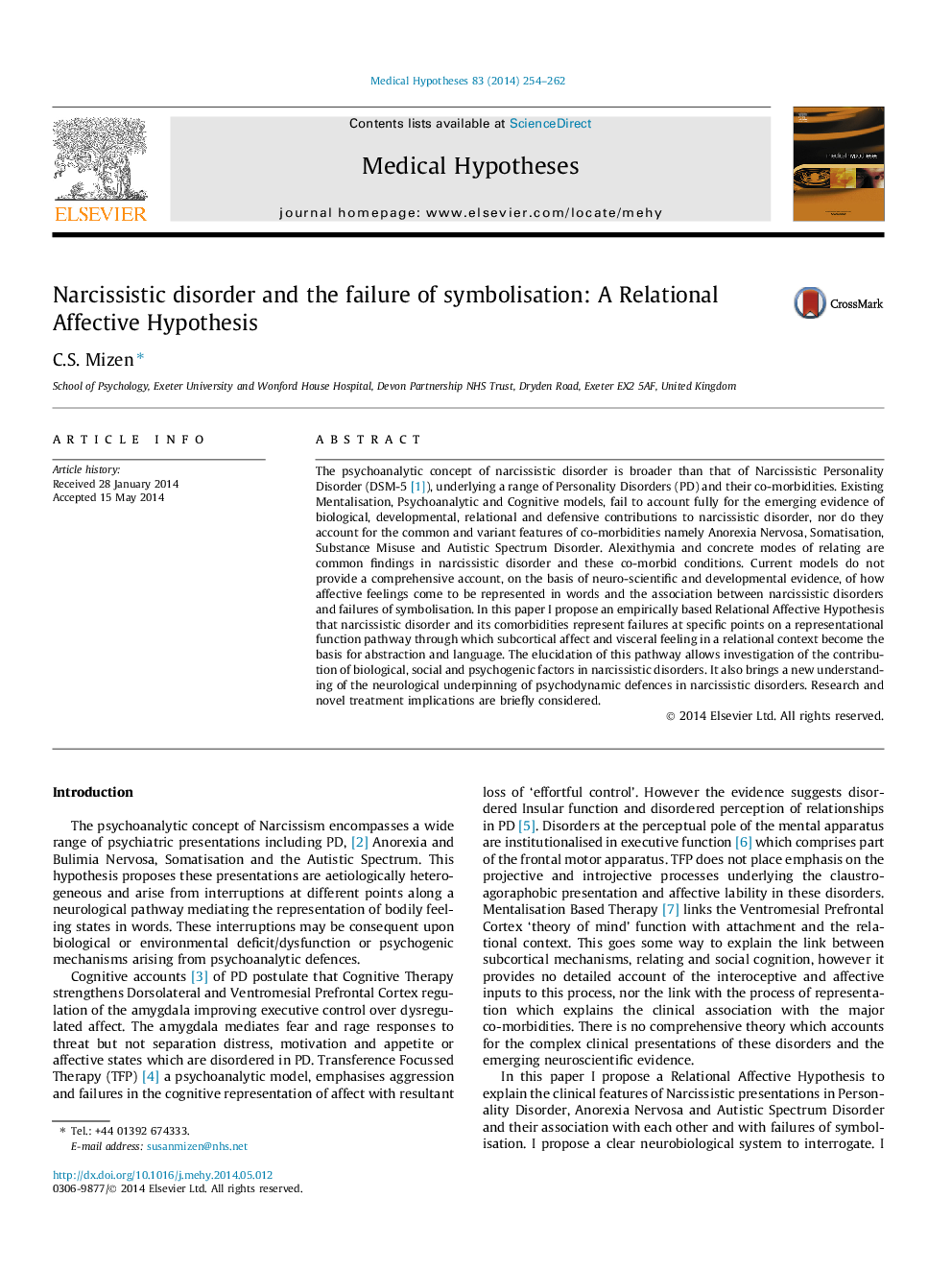| Article ID | Journal | Published Year | Pages | File Type |
|---|---|---|---|---|
| 5811659 | Medical Hypotheses | 2014 | 9 Pages |
The psychoanalytic concept of narcissistic disorder is broader than that of Narcissistic Personality Disorder (DSM-5 [1]), underlying a range of Personality Disorders (PD) and their co-morbidities. Existing Mentalisation, Psychoanalytic and Cognitive models, fail to account fully for the emerging evidence of biological, developmental, relational and defensive contributions to narcissistic disorder, nor do they account for the common and variant features of co-morbidities namely Anorexia Nervosa, Somatisation, Substance Misuse and Autistic Spectrum Disorder. Alexithymia and concrete modes of relating are common findings in narcissistic disorder and these co-morbid conditions. Current models do not provide a comprehensive account, on the basis of neuro-scientific and developmental evidence, of how affective feelings come to be represented in words and the association between narcissistic disorders and failures of symbolisation. In this paper I propose an empirically based Relational Affective Hypothesis that narcissistic disorder and its comorbidities represent failures at specific points on a representational function pathway through which subcortical affect and visceral feeling in a relational context become the basis for abstraction and language. The elucidation of this pathway allows investigation of the contribution of biological, social and psychogenic factors in narcissistic disorders. It also brings a new understanding of the neurological underpinning of psychodynamic defences in narcissistic disorders. Research and novel treatment implications are briefly considered.
